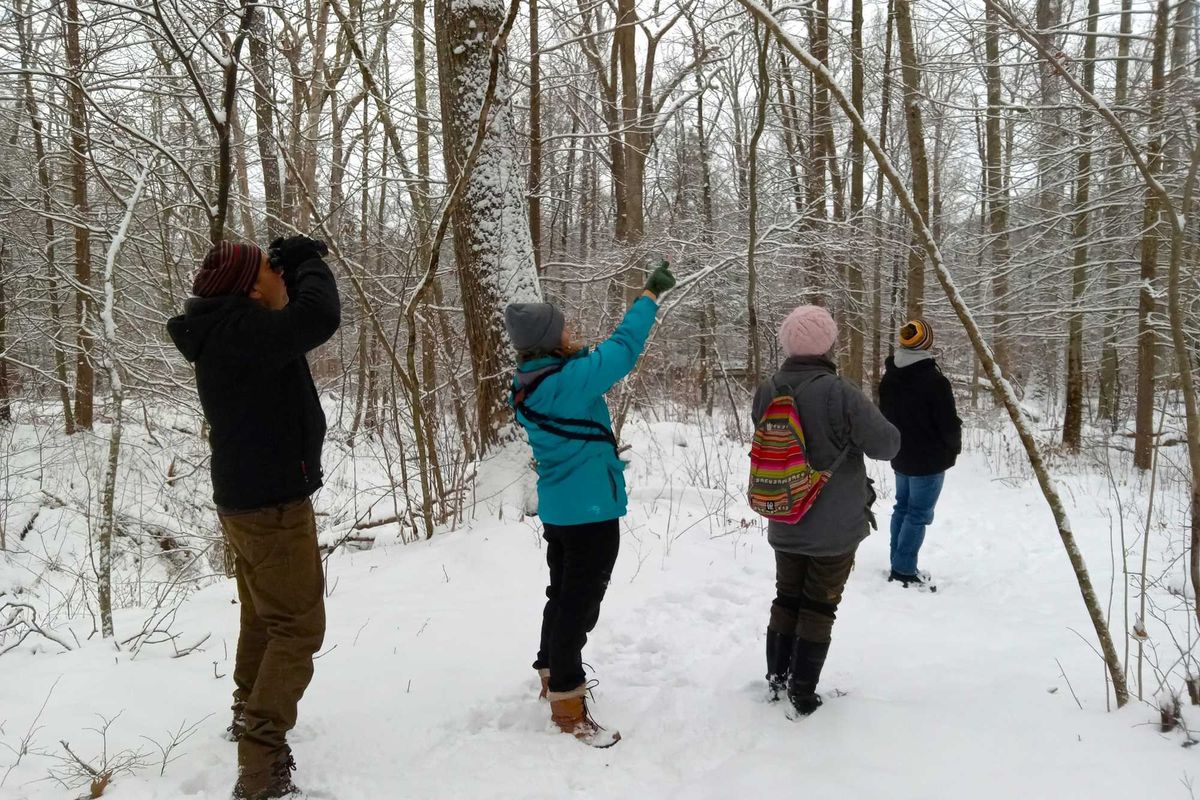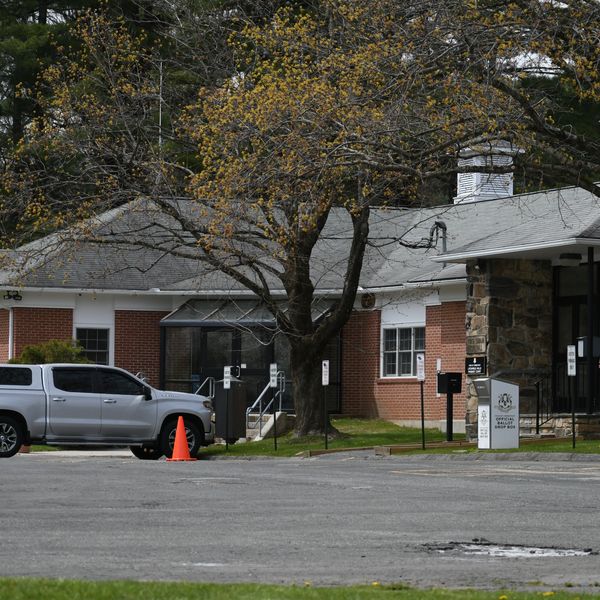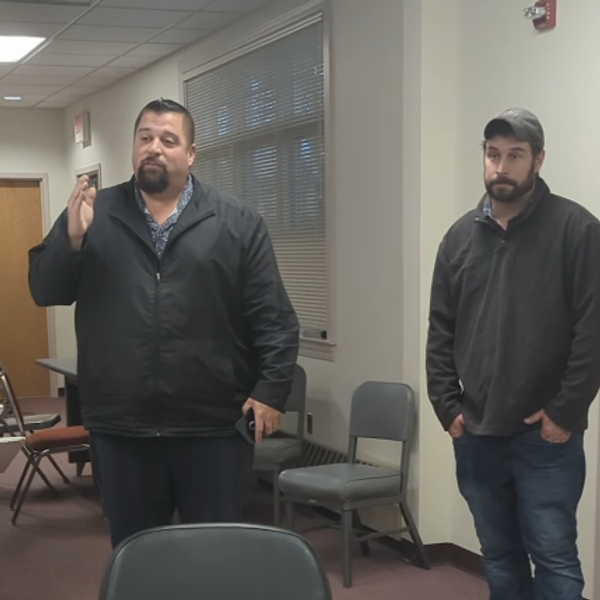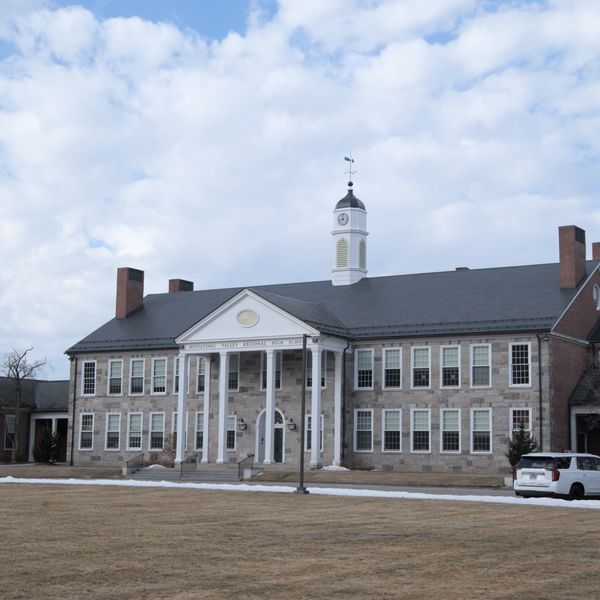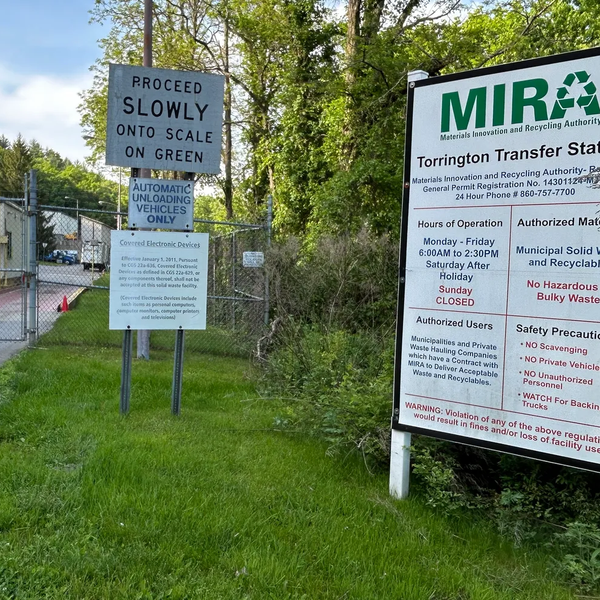Latest News
Sharon Hospital
Stock photo
SHARON — Notice that Northern Dutchess Paramedic will no longer be operating in northwest Connecticut has left local emergency responders and first selectmen concerned about the quality of future ambulance service in the Northwest Corner.
The news was first heard on Dec. 11 that the service would end as of Jan. 1, said Andrea Downs, speaking as president of the Falls Village Volunteer Fire Department. She is also an employee of NDP. The service, which was established in 1994 and is based in Rhinebeck, New York, has provided advanced life support and basic life support ambulance service to communities in Dutchess and Columbia counties in New York state, as well as parts of Litchfield County.
Al Tortorella of Sharon, another NDP employee, explained that every Connecticut town is required to have an advanced life support provider. For 28 years, Sharon Hospital has signed an annual hospital-sponsored agreement with NDP and in recent times Dr. Ronald Santos, the head of the emergency department under whose license NDP serves, acted as the signatory. When he was recently approached by NDP to sign it, he said he could not, taking everyone by surprise, Tortorella said.
Area towns have their own volunteer ambulance services whose members provide basic life support. NDP supplements those crews providing more advanced care and dispensing medicines, as well as carrying out inter-facility transports.
Sharon Hospital is part of Nuvance Health and earlier this year merged with Northwell Health. Downs and Tortorella said they understand that Nuvance/Northwell plans to operate its own paramedic service.
A paramedic will be covering the Sharon Hospital catchment area. The person will start the day in New Milford and then come to Sharon. If needed he/she will be assisted by a paid EMT from Nuvance.
“It’s a system designed to fail,” said Tortorella. “This is a huge issue.”
Downs agreed, noting that the person’s 12-hour shift will be taken up with hours of travel time. “I’m very concerned with the health and well-being of the residents of the Northwest Corner. We don’t want any reduction of services for patients in the region. I can’t understand the rationale of taking services away. Northwell wants to maintain a model of corporate healthcare. They can’t put a face to the people and culture we’ve established here. We’re talking life and death.”
Downs made it clear this has nothing to do with any job losses at NDP, which has just been bought by Empress. There is plenty of need for services in New York state, so their jobs are secure. Their concern is for the welfare of their families, friends and neighbors in the Northwest Corner.
During an interview with Christina McCulloch, CEO and president of Sharon Hospital, and Andrea Rynn, assistant vice president for community, government and public relations at Northwell, when asked about the decision to drop Northern Dutchess, they said, “Recently concerns were brought to our attention about compliance and lacking communications. This information left us unsettled and unable to be a sponsoring hospital at this time.”
As for the short notice, they agreed the timing for the transition was not optimal. “We were disappointed that information was not more forthcoming to us and in a timelier way. Despite the tight timing, we are actively developing a coverage plan in concert with local first responders and area leaders. This is a process that is just beginning and we are confident it will strengthen over time.”
The pair emphasized they are committed to ensuring service continuity as they continue to work with community partners to enhance emergency medical services across the region and provide high-quality care.
The two have met with representatives of area ambulance squads and on Friday held a session with the region’s first selectmen. Gordon Ridgway, first selectman of Cornwall, said people are feeling a bit rushed about the move. They are concerned that services will be lessened, not enhanced. “This is the most important thing in town; picking up people in the middle of the night and providing immediate care. It has to be done well.”
Falls Village First Selectman David Barger said while it was a productive meeting and a number of questions were answered; there were a number that were not. He is offering to hold a meeting at that town’s emergency services center in January at which all interested parties, including ambulance squads, first selectmen and hospital representatives, will be invited.
Keep ReadingShow less
Connecticut crowns football state champs
Dec 19, 2025
Berlin High School’s football team rejoices after a last-minute win in the Class M championship game Saturday, Dec. 13.
Photo courtesy of CIAC / Jada Mirabelle
In December’s deep freeze, football players showed their grit in state playoff tournaments.
Connecticut Interscholastic Athletic Conference named six state champions in football. The divisions are based on school size: Class LL included schools with enrollment greater than 786; Class L was 613 to 785; Class MM was 508 to 612; Class M was 405 to 507; Class SS was 337 to 404; and Class S was fewer than 336.
Eight teams qualified for each tournament and all championship games were played on Saturday, Dec. 13.
Class LL was won by Greenwich High School for the second straight year. Greenwich beat Southington High School 45-6 to win the tournament. Jack Kelly rushed in three touchdowns for the Cardinals and caught a fourth.
Class L was won by New Canaan High School, which completed an undefeated season. New Canaan beat Cheshire High School 34-13 for the school’s fourth-straight state title. In the regular season, New Canaan defeated Greenwich 14-7.
Class MM was won by Windsor High School, which defeated Bunnell High School 23-13. Windsor quarterback A.J. Robinson threw for 140 yards with a passing touchdown and two rushing touchdowns.
Class M was won in the final minute by Berlin High School 20-15 over Brookfield High School. The thriller came down to the wire. Brookfield went ahead with a late touchdown. Then on the kickoff that followed, Berlin’s Eli Rice ran it 80-yards to the house to take the lead with 33 seconds remaining and secure the state trophy.
Class SS was won by Daniel Hand High School, marking its 15th state title in school history. Hand defeated reigning champion Killingly High School 37-13. Killingly was previously on a 25-game win streak that stretched over two seasons.
Class S was won by Sheehan High School, defeating Northwest Catholic High School 21-7. Running back Joshua Durant ran for 215 yards and three touchdowns in the win for Sheehan, which was the first state title since 2019 for the school.
Details and photos from each championship game can be found at ciac.fpsports.org
Keep ReadingShow less
Volunteers scan snowy treetops during the Trixie Strauss Christmas Bird Count in Sharon. Teams identified more than 11,400 birds across 66 species.
Photo: Cheri Johnson/Sharon Audubon Center.
SHARON — Birdwatching and holiday cheer went hand in hand for the Trixie Strauss Christmas Bird Count on Sunday, Dec. 14, with hobbyists and professionals alike braving the chill to turn their sights skyward and join the world’s longest running citizen science effort.
The Christmas Bird Count is a national initiative from the Audubon Society, a globally renowned bird protection nonprofit, that sees tens of thousands of volunteers across the country joining up with their local Audubon chapters in December and January to count birds.
This wintry avian census, which is now in its 126th year, is very effective at amassing bird quantity and species diversity data, especially in colder climates where seasonal populations of birds are highly variable. These datasets, Audubon has upheld, provide vital snapshots of population health and trends, which then informs conservation strategy.
Sharon Audubon helped to host the Trixie Strauss count, the formal name of the regional count that covers an area centering on The Hotchkiss School, with staff members aiding 24 volunteers spread out over eight teams that each surveyed a unique 15-mile loop.
According to the total tally, the volunteers had identified over 11,400 birds spanning 66 species, just one less than last year’s total of 67 species.
While the number is similar, Bethany Sheffer, volunteer coordinator and naturalist at Sharon Audubon, said the species that are present are subject to change based on a number of factors. The early freeze of lakes and ponds in the Northwest Corner meant that there were fewer species that prefer open water tallied this December, Sheffer explained.
Belted kingfishers, for example, were entirely absent from the count.
The data also found no northern mockingbirds or gray catbirds. Several groups noticed an abundance of the dark-eyed junco, though Sheffer noted that the reasons for these changes from previous years are as of yet unclear.
However murky the causes, Sheffer noted that the amassing of this data lays the foundation for vital observations surrounding species trends. Citizen science observations enabled scientists to discover that the range of the northern cardinal was expanding, for example, and that the Cooper’s Hawk is becoming more common in the wintertime New England forest as it’s been staying behind to prey on smaller songbirds that congregate at bird feeders when the ground is snow-covered.
Sheffer noted, though, that it’s not all about the data.
“The history of the Christmas Bird Count is really moving,” she said, explaining that its origins lie in a Victorian tradition of a Christmas “hunt,” where groups would scour the hillsides and treetops to kill, not count.
Since ornithologist Frank M. Chapman declared the first count in 1900 as a direct opposition to the hunt, the tradition has stuck. Sheffer said it’s a valuable example of how humans’ relationship to the natural world can be reframed.
"It’s important for us now more than ever to be serving birds” as stewards, she said, noting that many species face threats due to climate change and habitat degradation and loss. And another plus, Sheffer said, is the spirit of community, bringing people of all experience levels with birds together for what she described as a truly joyous day: “It’s become an event that brings people together in a really moving way.”
The Trixie Strauss count is just one of 20 in Connecticut. Several, including one just over the border in Pawling, New York, have yet to occur. For a list of each upcoming count, and who to contact with inquiries, visit ctbirding.org/cbc-2025-2026/.
Keep ReadingShow less
John and Diane Degnan plan to convert the warehouse at the back of the property into their primary residence, while leaving the four-unit building in the front available for long-term rentals.
By Ruth Epstein
KENT — A proposal to convert an old warehouse into a residence on Lane Street in downtown Kent has become more complicated than anticipated, as the Planning and Zoning Commission considers potential unintended consequences of the plan, including a proposed amendment to Village Residential zoning regulations.
During a special meeting Wednesday, Dec. 10, attorney Jay Klein of Carmody, Torrance, Sandak and Hennessey presented the proposal on behalf of John and Diane Degnan, who have lived at 13 Lane St. since 2022.
The Degnans are seeking to convert an industrial structure at the rear of their property, currently used for storage, into their primary residence, while keeping a four-unit building at the front of the lot available as affordable rental housing.
What appears to be a straightforward proposal has been complicated by a murky zoning history and regulatory constraints tied to the property’s designation.
Neighbors, however, say the review process has dragged on unnecessarily and are urging the commission to move forward with a project they believe would benefit the street.
“Is it normal for zoning to go this far?” asked Lane Street neighbor Lili Mason during the public comment period at the Dec. 10 meeting. “This is all ridiculous as far as I’m concerned.”
Mason’s frustrations were echoed by other testifiers, who voiced unified support for the Degnans’ project and praised the couple’s character:
“[They’ve] changed the neighborhood for the better,” said Ed Raftery. “Don’t penalize people who are trying to make improvements,” said Tamara Potter, another Lane Street resident, who recalled overpowering shellac fumes drifting through the neighborhood when the warehouse was used to store pleasure boats.
According to Land Use Office records, the structure has previously housed an auto body repair shop, an aquarium store, a mail-order book business, sign production and a skin care mail-order operation, among other uses.
“A commercial building on this street just doesn’t fit,” Potter emphasized, alluding to the fact that the conversion of the warehouse to a residence would essentially prohibit the possibility of a future industrial use on the property.
Commission members largely agreed with residents that the proposal — combining a new residence with affordable rentals — would be a positive change. Several commissioners, however, raised concerns about the applicant’s approach, particularly a proposed amendment to the section of regulations governing special permits in the Village Residential zone.
With guidance from zoning expert Glenn Chalder and town attorney Michael Ziska, the commission pushed back on aspects of the amendment, which would add a new section specifically addressing conversions of industrial or commercial buildings to residences. The proposed language included specialized rules related to density, parking and discretionary waivers of certain zoning requirements.
New commission member Donna Hayes, who was once the town’s land use director, explained that regulations designed for a particular project can have unintended effects elsewhere in town:
“One of the things that [residents] need to understand is that a regulation is written not for a specific piece of property but for a complete zone. And it’s written not for any particular person, but it’s written for the future as well.”
Ziska offered a similar warning: “Once regulations are changed, things happen. Things happen that nobody can expect.”
He expressed doubts about several aspects of the applicant’s proposal, though indicated general support for the concept and suggested there might be a simpler and safer way forward.
Klein said the Degnans’ goal is to improve the property “utilizing existing site resources” while bringing the entire parcel into zoning compliance. Ziska noted that the four-unit building at the front of the lot was never formally approved by a zoning officer — an issue that will need to be resolved if the units are to be used as affordable rentals. Chalder and several commissioners recommended that the applicant work with Kent Affordable Housing in coming up with a plan for the units, which Klein said would be priced between $950 and $1,800.
Klein, Chalder and Ziska ultimately agreed to meet later in the month to come up with a path forward agreeable to both the Degnans and the town. The hearing was left open, and will continue at P&Z’s next regular meeting on Jan. 8.
Keep ReadingShow less
loading


